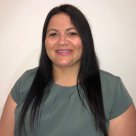News of the discovery of an estimated 751 unmarked graves at the former site of a Saskatchewan residential school has made an immediate impact right across the country.

Dalhousie University Mi’kmaw educator Patti Doyle-Bedwell says the discovery at the former Marieval Indian Residential School in southeastern Saskatchewan shows that more needs to be done in terms of educating people about residential schools and the trauma they have left behind.
“I always tell my students, ‘Look, it’s not your problem,’ in the sense that you didn’t learn all these issues around treaties and residential schools. But, it is your responsibility now. I have 75 people in my class and at least 65 of them don’t have a very good background in Indigenous studies,” she said.
A lawyer, a professor and the daughter of a residential school survivor, Doyle-Bedwell listened to the announcement on Thursday in horror.
“I heard that number I just gasped,” she said. “It broke my heart.”
Doyle-Bedwell says there have been attempts, at the hands of the federal government and the Catholic church, to erase Indigenous history. She says now, more than ever, people need to be educated about what transpired in residential schools.
- Posters promoting ‘Steal From Loblaws Day’ are circulating. How did we get here?
- Video shows Ontario police sharing Trudeau’s location with protester, investigation launched
- Canadian food banks are on the brink: ‘This is not a sustainable situation’
- Solar eclipse eye damage: More than 160 cases reported in Ontario, Quebec
“One of the things that we need to do is go beyond what they’re doing in high schools here with Mik’maq studies,” she said.
“I mean building a wigwam is one thing but learning about the law and policies of the federal government against Indigenous people needs to be taught in school so people have an understanding of, ‘why are we living on reserves, why are we tax free, you know, what were residential schools.”
In order to have peace and reconciliation, Doyle-Bedwell says we need to be educated about the dark part of Canada’s history.
“I think the federal government and the Catholic church, they’ve done everything in their power to stop these stories from coming out. Our history and what’s happened to us has never been seen as important. So, people talk about residential schools and I’ve heard people say this: ‘Well, it happened along time ago, I don’t know why you’re so upset.,'” she said.
“It’s like no, it happened in our lifetime.”
Now that these mass graves are being found, she says the Indigenous community is reeling worldwide, and suffering an immense amount of trauma.
“I’m just sad for them. I’m sad for the families, I’m sad for the kids,” she said.
“I have a little shrine in my house for the kids. Like, a little pair of sneakers, some sweetgrass and the flag to remember them. Cause they want their voices heard.”
In Nova Scotia, the investigation into unmarked graves is still ongoing at the Shubenacadie residential school, something Doyle-Bedwell hopes will end soon.
“They’re searching now for these kids so we can bring them home.”
The Indian Residential Schools Resolution Health Support Program has a hotline to help residential school survivors and their relatives suffering with trauma invoked by the recall of past abuse. The number is 1-866-925-4419.





Comments